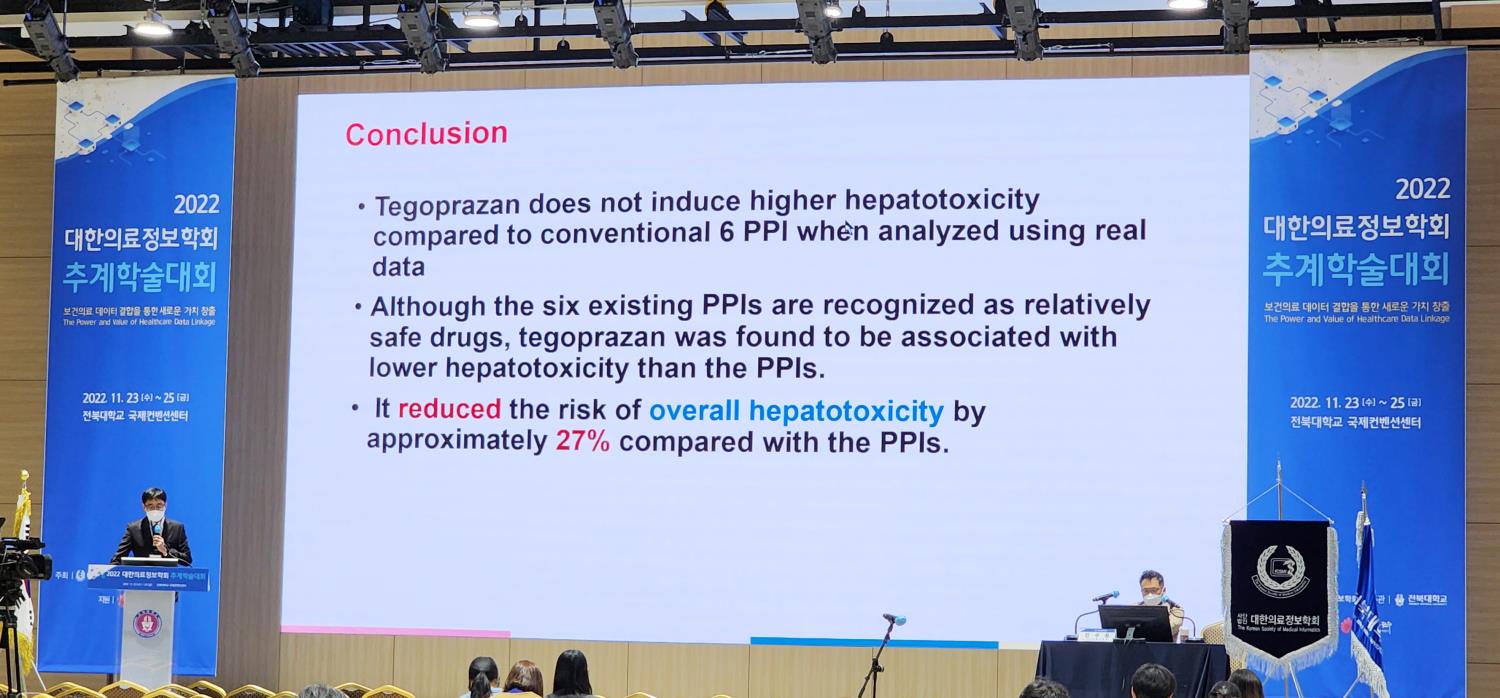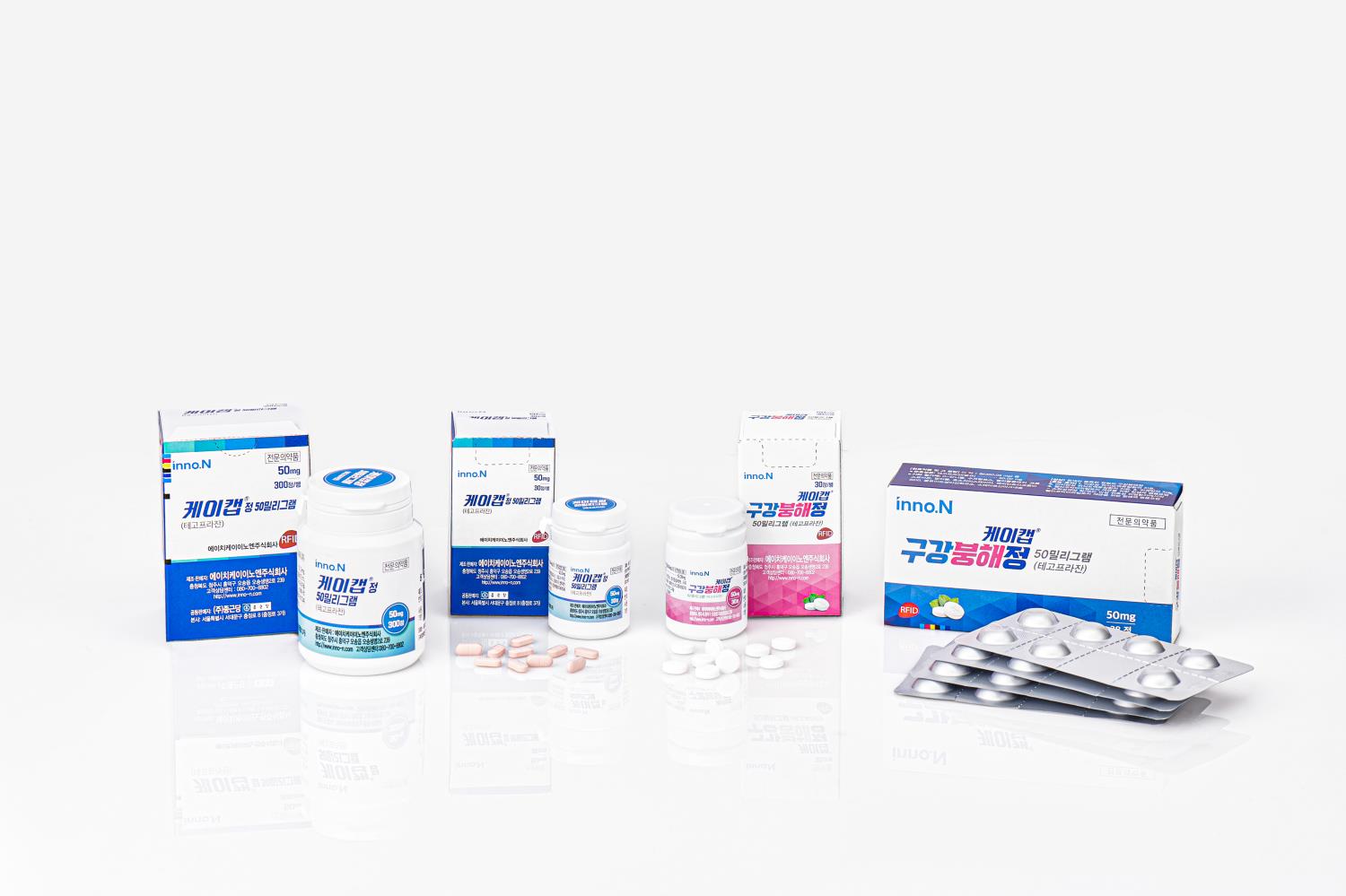HK inno.N presents K-CAB big data hepatotoxicity
Nov 28, 2022
HK inno.N presents K-CAB big data hepatotoxicity comparison study
Comparison study of hepatotoxicity levels among GERD treatments conducted by Professor Jongseung Kim, Ear, Nose and Throat Department at Jeonbuk University Hospital
Concludes K-CAB has a 27% lower risk of hepatotoxicity compared to other GERD treatments

The results from a study comparing the hepatotoxicity of K-CAB, a new drug within the P-CAB category developed by HK inno.N for GERD, and the hepatotoxicity of PPI drugs was released. This study used big data provided by the Health Insurance Review and Assessment Service. More studies using big data are expected to take place to boost the value of newly developed drugs.
HK inno.N announced on the 28th that it had unveiled the results from a study comparing the hepatotoxicity of K-CAB, a P-CAB drug, and competitor products within the PPI category. The study results were presented at the 2022 fall academic conference of the Korean Society of Medical Informatics, held at the Convention Center of Jeonbuk University for three days starting the 23rd. The study, titled, “Comparison of hepatotoxicity between P-CAB and PPI – a follow-up cohort study”, was led by Professor Jeongseung Kim of the Ear, Nose and Throat Department at Jeonbuk University Hospital.
The research team used big data from the Health Insurance Review and Assessment Service to compare the affects of GERD treatment in relation to liver function and damage.

The study showed that K-CAB had a 27% lower risk of hepatotoxicity compared to six competitor PPI drugs.
The research team extracted data on patients who were prescribed with a P-CAB drug (active ingredient: Tegoprazan) or one of the six types of PPI drugs (active ingredient: Dexlansoprazole, Esomeprzole, Lansoprazole, Pantoprazole, Rabeprazole, Omeprazole) between January 2020 and December, 2020, for at least two consecutive months, from the entire database of the Health Insurance Review and Assessment Service which contains data on 50 million patients. The data was then used to analyze the prevalence of liver diseases and various risk factors for hepatotoxicity.
In order to raise the validity of the study, variables that could affect the results, such as age and or history of antibiotics administration were evenly matched which enabled an analysis of 1,737,176 cases out of the entire 6,487,583 cases in the database.
Many biotechnology and pharmaceutical firms, as well as Academic institutions, research institutes and hospitals use big data in healthcare to analyze the trends in disease prevelance or to establish strategies for new drug development.
The case of using big data from actual prescriptions to confirm the safety of the new drug, K-CAB, compared to existing PPI drugs is likely to set yet another precedent for validating the safety and efficacy of new drugs in the future.
Professor Jongseung Kim who led the study commented, “The existing drugs in the P-CAB category had hepatotoxicity issues. K-CAB was found to have relatively lower risk of hepatotoxicity. This latest study used actual data from Korean patients across the country who were prescribed with K-CAB to review whether there were side effects. The study is particularly meaningful in that despite K-CAB being a new drug, quick access to data and analysis allowed us to draw significant findings”.
The research team led by Professor Jongseung Kim specializing in ear, nose and throat diseases at Jeonbuk University Hospital has been studying the correlation of diseases by combining medical data with data science technologies through its medical informatics class. Established in February 2020, the medical informatics class is the first of its kind to be established at a national university in Korea.
K-CAB, developed by HK inno.N is a treatment drug for GERD and falls within the P-CAB category. It has been approved for a total of 5 indications which include erosive reflux disease, non-erosive reflux disease, gastric ulcers and Helicobacter pylori eradication. It has also been approved for maintenance therapy after ERD treatment and boasts the largest number of indications among P-CAB drugs. K-CAB has been launched in two formulations, one being an immediate release tablet and the other an orally disintegrating tablet. K-CAB is also expected to launch K-CAB 25 mg, which is half the dosage of the already launched 50mg.